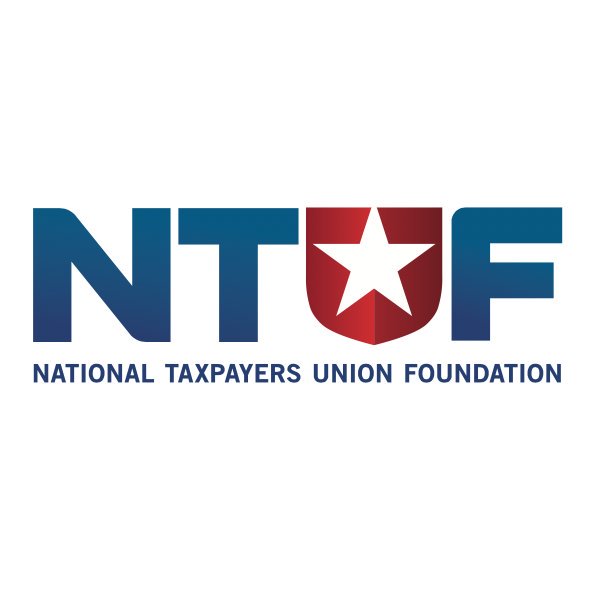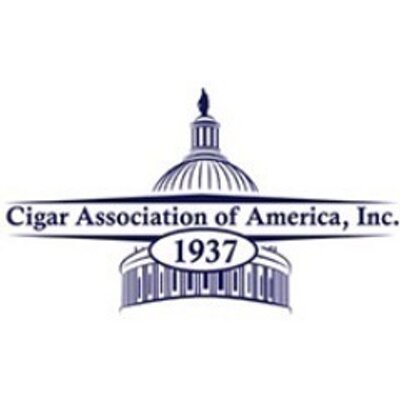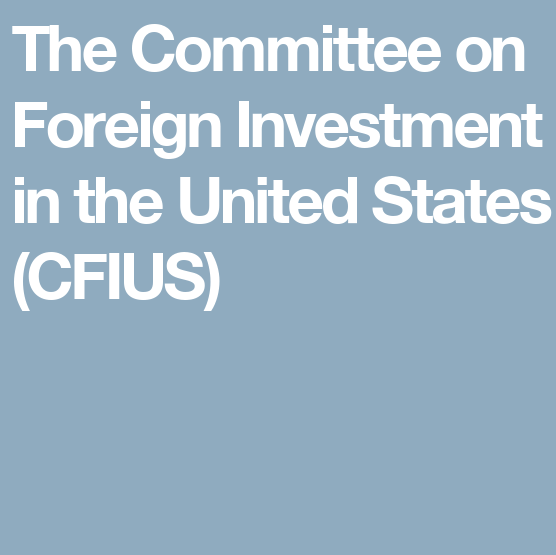Cause of Action Institute frequently writes amicus curiae briefs to support other litigants and present important issues to the court. Please contact us at amicus@causeofaction.org if you’d like amicus support for your case.
| Year | Case Name | Question Presented | Court | Issue Area | Attorneys | |
|---|---|---|---|---|---|---|
 | 2019 | Liu v. SEC | Whether the SEC may seek and obtain disgorgement from a court as 'equitable relief' for a securities law violation even though this Court has determined that such disgorgement is a penalty. Read More | U.S. Supreme Court | Separation of Powers | Cynthia Crawford Michael Pepson |
 | 2019 | Seila Law LLC v. CFPB | Whether the CFPB's structure violates the separation of powers and whether Humprey's Executor should be narrowed. | U.S. Supreme Court | Separation of Powers | |
 | 2019 | Publishers Business Services and AMG Capital Management v. FTC | Whether Section 13(b) of the Federal Trade Commission Act authorizes the Federal Trade Commission to demand monetary relief such as restitution. Read More | U.S. Supreme Court | Economic Freedom | Cynthia Crawford Michael Pepson |
 | 2019 | Maine Community Health Options v. United States | Whether Congress may defund the risk corridor program created by the Affordable Care Act Read More | U.S. Supreme Court | Economic Opportunity - Health Care | Eric Bolinder James Valvo |
 | 2019 | Baldwin v. United States | Whether the U.S. Supreme Court should overturn its prior decision in Brand X, which grants deference to agency interpretations of statutes Read More | U.S. Supreme Court | Separation of Powers | John Vecchione Michael Pepson Cynthia Crawford |
 | 2019 | Espinoza v. Montana Department of Revenue | Does it violate the Religion Clauses or Equal Protection Clause of the United States Constitution to invalidate a generally available and religiously neutral student-aid program simply because the program affords students the choice of attending religious schools? | U.S. Supreme Court | Educational Freedom | Cynthia Crawford |
 | 2019 | Federal Trade Commission v. Qualcomm | Whether the FTC has abused its Section 13(b) authority and the proper construction of "proper case" Read More | Ninth Circuit | Economic Freedom | John Vecchione Michael Pepson Jessica Thompson |
 | 2019 | CIC Services v. IRS | Whether the Anti-Injunction Act prevents subject-matter jurisdiction to review an IRS rulemaking. | Sixth Circuit | Regulatory Reform | John Vecchione Lee Steven James Valvo |
 | 2019 | Competitive Enterprise Institute v. Michael Mann | Whether the First Amendment permits defamation liability for subjective commentary on true facts concerning a matter of public concern. | U.S. Supreme Court | First Amendment | John Vecchione Josh Schopf Ryan Mulvey |
 | 2019 | Cochran v. SEC | Is Section 25 of the Securities and Exchange Act of 1934 a jurisdiction-stripping statute that prevents federal courts from reviewing challenges to agency action as a federal question under Section 1331? | Fifth Circuit | Separation of Powers | John Vecchione |
 | 2019 | Arizona v. California | Do California's extraterritorial assessments and seizures violate the Due Process Clause, Commerce Clause, or Fourth Amendment? Read More | U.S. Supreme Court | Economic Freedom | Cynthia Crawford James Valvo |
 | 2019 | Food Marketing Institute v. Argus Leader | What is the proper scope of the term "confidential" in Exemption 4 of the Freedom of Information Act? Read More | U.S. Supreme Court | Government Transparency | Ryan Mulvey James Valvo |
 | 2019 | Federal Trade Commission v. AMG Capital Management | Whether the FTC exceeded the scope of its remedial authority under Section 13(b). | Ninth Circuit | Economic Freedom | John Vecchione Michael Pepson Jessica Thompson |
 | 2019 | McDonough v. Smith, Merits Stage | Whether the statute of limitations for a Section 1983 claim based on fabrication of evidence in criminal proceedings begins to run when those proceedings terminate in the defendant's favor or when the defendant becomes aware of the tainted evidence and its improper use. | U.S. Supreme Court | Criminal Justice Reform | John Vecchione John McGlothlin Michael Geske |
 | 2019 | Kisor v. Wilkie | Whether the Supreme Court should overrule Auer v. Robbins and Bowles v. Seminole Rock, which direct courts to defer to an agency's reasonable interpretation of its own ambiguous regulation. | U.S. Supreme Court | Separation of Powers | John Vecchione |
 | 2018 | McDonough v. Smith, Cert Stage | Whether the statute of limitations for a Section 1983 claim based on fabrication of evidence in criminal proceedings begins to run when those proceedings terminate in the defendant's favor or when the defendant becomes aware of the tainted evidence and its improper use. | U.S. Supreme Court | Criminal Justice Reform | John Vecchione John McGlothlin Michael Geske |
 | 2018 | Institute for Justice v. Reilly | Whether the Georgia General Assembly is covered by the state's Open Records Act. Read More | Georgia Supreme Court | Government Transparency | James Valvo Ryan Mulvey |
 | 2018 | Timbs v. Indiana | Whether the Excessive Fines Clause of the Eighth Amendment is enforceable against the States. Read More | U.S. Supreme Court | Criminal Justice Reform | John Vecchione Julie Smith Cynthia Crawford |
 | 2018 | FCA US LLC v. Flynn | Whether litigation based on speculative harm will undermine cybersecurity in IOT and stifle innovation. | U.S. Supreme Court | Regulatory Reform | John Vecchione |
 | 2018 | Allah v. Milling | Whether qualified immunity denies justice to victims of unconstitutional misconduct. Read More | U.S. Supreme Court | Criminal Justice Reform | John Vecchione Erica Marshall |
 | 2018 | California Sea Urchin Commission v. Combs | Whether agencies are delegated authority by statutory silence such that actions without congressional authorization receive Chevron deference. | U.S. Supreme Court | Separation of Powers | John Vecchione |
 | 2018 | Gundy v. United States | Whether granting the attorney general unbounded discretion to define federal criminal liability violates the nondelegation doctrine. | U.S. Supreme Court | Criminal Justice Reform | |
 | 2018 | Weyerhaeuser Co. v. U.S. Fish and Wildlife Service | Whether an agency decision not to exclude an area from critical habitat designation because of the economic impact of designation is subject to judicial review. Read More | U.S. Supreme Court | Economic Freedom | John Vecchione Kara McKenna Cynthia Crawford |
 | 2018 | CIC Services v. IRS | Whether the Anti-Injunction Act prevents subject-matter jurisdiction to review an IRS rulemaking. Read More | Sixth Circuit | Regulatory Reform | John Vecchione James Valvo |
 | 2018 | CTIA - The Wireless Ass'n v. City of Berkeley | What level of scrutiny does the First Amendment require when governments impose "disclosure" regimes that force sellers to speak and disparage their own products or take sides in a public policy debate? Read More | U.S. Supreme Court | First Amendment | John Vecchione James Valvo |
 | 2017 | United States v. Kolsuz | Whether the U.S. applied the Fourth Amendment exception in situations that do not justify the implication of the exception Read More | Fourth Circuit | Criminal Justice Reform | Erica Marshall |
 | 2017 | Marinello v. United States | Does a conviction under 26 U.S.C. § 7212(a) for corruptly endeavoring to obstruct or impede the due administration of the tax laws require that the government prove the defendant acted with knowledge of a pending IRS action? Read More | U.S. Supreme Court | Criminal Justice Reform | John Vecchione Erica Marshall |
 | 2017 | Federal Trade Commission v. AT&T Mobility LLC | Can the FTC ignore express statutory limits on its authority and the plain language of its organic statute to advance what it perceives to be sound public policy? | Ninth Circuit | Economic Freedom | Patrick Massari Michael Pepson Cynthia Crawford |
 | 2017 | Cigar Ass'n of America v. Food and Drug Administration | Whether the FDA ignored Congress's mandate to analyze Warning-Label efficacy for the premium cigar industry. Read More | District Court for D.C. | Economic Freedom | Patrick Massari Eric Bolinder |
 | 2017 | Murray Energy Corp. v. EPA | Does Section 321(a) of the Clean Air Act establish mandatory, non-discretionary duties for the Environmental Protection Agency? Read More | U.S. Supreme Court | Regulatory Reform | Eric Bolinder Joshua Schopf John Vecchione |
 | 2017 | Daugherty v. Sheer | Whether federal officials knowingly violated LabMD's First Amendment rights by making a deliberate, calculated decision to punish the company for speaking about FTC's abuse of authority. | D.C. Circuit | First Amendment | Patrick Massari Michael Pepson |
 | 2017 | Cigar Ass'n of American v. Food and Drug Administration | Whether the FDA ignored Congress's mandate to analyze Warning-Label efficacy for the premium cigar industry. | District Court for D.C. | Economic Freedom | Eric Bolinder Patrick Massari |
 | 2017 | DeCoster v. United States | Whether the Court should reconsider U.S. v. Park, where it held that under the Food, Drug, and Cosmetic Act (FDCA) criminal "liability of managerial officers [does] not depend on their knowledge of . . . the act made criminal by the [FDCA], but instead on an officer's position in the corporation." Read More | U.S. Supreme Court | Criminal Justice Reform | Erica Marshall |
 | 2017 | Competitive Enterprise Institute v. Michael Mann | Whether First Amendment rights are violated when scientists use the court system to silence people who are critical of their work. Read More | D.C. Court of Appeals | First Amendment | John Vecchione James Valvo |
 | 2017 | Gloucester County v. G.G. | Whether courts should extend Auer deference to an unpublished agency letter that does not carry the force of law. Read More | U.S. Supreme Court | Separation of Powers | |
 | 2017 | LabMD, Inc. v. Federal Trade Commission | Whether the FTC lacks Section 5 "unfairness" authority to regulate medical data-security because it is already comprehensively regulated by HHS under HIPAA. | Eleventh Circuit | Economic Freedom | Patrick Massari Michael Pepson |
 | 2017 | Turner v. United States | Whether the petitioners' convictions must be set aside under Brady v. Maryland, 373 U.S. 83 (1963). | U.S. Supreme Court | Criminal Justice Reform | |
 | 2016 | United States v. Weed | Whether the SEC's formal adjudication of Section 3(a)(9) was entitled to Chevron deference under the rule of lenity when the statute has both civil and criminal applications. Read More | First Circuit | Separation of Powers | Patrick Massari Erica Marshall |
 | 2016 | Florida Bankers Ass'n v. Department of the Treasury | Whether the Anti-Injunction Act prevents subject-matter jurisdiction to review an IRS rulemaking. Read More | U.S. Supreme Court | Regulatory Reform | Alfred Lechner Lee Steven James Valvo |
 | 2015 | Justice v. Hosemann | Whether the First Amendment prevents Mississippi from prohibiting spending of more than $200 on pure speech about a ballot measure without creating a political committee. | U.S. Supreme Court | First Amendment | Alfred Lechner Lee Steven Joshua Schopf |
 | 2015 | United States v. Sierra Pacific Industries, Inc. | Whether the protections of Brady v. Maryland apply in civil proceedings. Read More | Ninth Circuit | Criminal Justice Reform | Daniel Epstein Stephen Schwartz |
 | 2015 | Van Hollen v. Federal Election Commission | Whether the Federal Election Commission struck a proper balance between campaign transparency and citizen privacy and the court below should have accordingly deferred? Read More | D.C. Circuit | First Amendment | Daniel Epstein Lee Steven Joshua Schopf |
 | 2015 | O'Keefe v. Chisholm | Whether, as this Court left unresolved in Hartman v. Moore, officials may be held liable for subjecting citizens to investigation in retaliation for First Amendment-protected speech and association. | U.S. Supreme Court | First Amendment | Reed Rubinstein Daniel Epstein Prashant Khetan James Valvo |
 | 2014 | Community Financial Services Ass'n of America v. Federal Deposit Insurance Corp. | Whether the FDIC's application of Choke Point offends basic federalism principles and raises prudential questions regarding the efficacy and efficiency of agency enforcement and policy decision-making. | District Court for D.C. | Economic Freedom | Daniel Epstein Prashant Khetan |
 | 2014 | Yates v. United States | Whether a fish is a "tangible object" under the Sarbanes-Oxley Act's "anti-shredding" provision. Read More | U.S. Supreme Court | Criminal Justice Reform | Daniel Epstein Prashant Khetan |
 | 2013 | McCutcheon v. Federal Election Commission | Whether the biennial limits on contributions to non-candidate committees, 2 U.S.C. § 441a(a) (3)(B), are unconstitutional facially for lacking a constitutionally cognizable interest. Read More | U.S. Supreme Court | First Amendment | Daniel Epstein Hallee Morgan Justin Meyers Marie Connelly Robyn Burrows Karen Groen |
 | 2012 | Ralls Corp. v. Obama | Whether the Executive Branch may take unauthorized actions that arbitrarily deprive individuals and businesses of their property at any time without due process and judicial review. Read More | District Court for D.C. | Economic Freedom | Amber Abbasi |